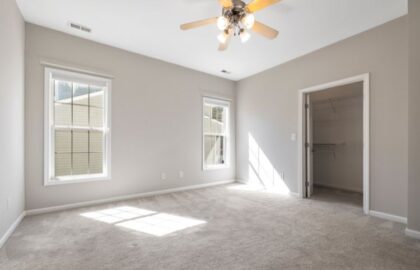
In the vibrant city of Cairns, the landlord-tenant relationship is a crucial aspect of the local real estate landscape. For both parties, understanding the frequency of property inspections is paramount to maintaining a harmonious and legally compliant living arrangement.
By knowing the rights and responsibilities of both parties, you can navigate this aspect of real estate with confidence and ease.
So, in this article, we’ll explore the legal framework surrounding property inspections. That includes routine and safety checks. We’ll discuss the types of inspections, how often they can occur within a 12-month period and the correct procedures for notifying tenants.
Plus, we’ll delve into tenant rights, expectations, and the nuances of family violence safety notices in this region.
Let’s embark on a journey to demystify the rules governing property inspections in Cairns. This should offer both landlords and tenants clarity and peace of mind.
Understanding Landlord Inspections
In the realm of real estate, the term “landlord inspections” holds significant weight. It shapes the experience of both property owners and tenants in Cairns, Queensland.
These inspections aren’t mere formalities, but essential procedures governed by legal guidelines. This is to ensure the proper upkeep and safety of rental properties.
In Cairns, Queensland, the concept of landlord inspections is rooted in the need for property maintenance and adherence to safety standards.
The inspections serve to protect the interests of both landlords and tenants. They do that by maintaining the property’s condition and ensuring that it complies with all regulations.
To understand the frequency and nature of landlord inspections in Cairns, it’s essential to grasp the legal framework in place. It dictates the rights and responsibilities of both parties involved.
This offers a balanced approach to property management.
Tenants can expect to have their privacy respected, while landlords can access their properties for necessary inspections. Although landlords will have to adhere to the stipulated guidelines.
In the following sections, we’ll explore the frequency of routine inspections, dive into the types of property inspections you may encounter, and clarify the rights and responsibilities of landlords and tenants in the context of these inspections.
This knowledge is invaluable for navigating the landscape of landlord inspections in Cairns. Because of that, you’ll ensure a smooth and respectful relationship between all parties involved.
Frequency of Routine Inspections
In Cairns, Queensland, property checks are essential. These routine inspections keep rental homes in good shape and safe.
Because of that, they play a pivotal role in the local real estate scene. In this section, we’ll cover everything you need to know about landlord inspections.
From what they entail to their frequency, we’ll discuss it all.
What Are Routine Inspections?
Routine inspections are systematic evaluations of rental properties to assess their conditions. Typically, they’ll be conducted by landlords or their designated agents.
These check-ups aim to identify maintenance issues, fix problems, and ensure compliance with safety standards.
Plus, they aren’t arbitrary. Instead, they’re guided by specific regulations to protect the interests of both parties.
How Often Can They Happen?
The frequency of routine inspections in Cairns adheres to a well-defined schedule. Landlords are allowed to conduct routine check-ups within specific timeframes, primarily focused on maintaining a balance between property upkeep and tenant privacy.
Generally, during a 12-month period, landlords can arrange around four or five routine inspections. This translates to around one examination every three months.
Yet, they must ensure tenants receive reasonable notice. On average, the tenant should know about the check-up at least seven days in advance.
Plus, the landlord should provide you with a two-hour window when the inspection may occur.
That’s when “minimum notice period” and “proper notice” come into play. This outlines the precise time frames within which tenants must be informed about upcoming inspections, respecting their rights and privacy.
Understanding these rules ensures a peaceful coexistence between landlords and tenants. It keeps properties in good condition while respecting everyone’s rights.
Other Types of Property Inspections
Property inspections come in many forms and at several price points. Other than routine check-ups, there are a few distinct varieties.
Each type of inspection serves a unique purpose in maintaining the property and ensuring that it’s a safe and comfortable place for tenants.
In this section, we’ll jump into the different types of inspections and their purposes.
- Sales Inspections
Sales inspections, as the name suggests, are related to the sale of the property. These check-ups often occur when the unit is on the market, allowing potential buyers to view it.
However, they follow different rules compared to routine inspections.
- Drive-By Inspections
Drive-by inspections are quick, non-intrusive visits by landlords or their agents. These check-ups are to examine the exterior of units.
The inspections usually focus on the property’s curb appeal and any obvious issues on the outside.
- Housework Inspections
Landlords conduct housework check-ups to ensure that tenants are maintaining the property according to their lease agreements. These inspections focus on cleanliness, tidiness, and the general upkeep of the interior.
The Rights and Responsibilities of Landlords
At this point, you should know what property inspections are and how often they can occur. Besides that, it’s a good idea to understand the rights and responsibilities of landlords.
That way, you can pave the way for productive inspections, respect for privacy, and the maintenance of rental properties.
Landlord’s Rights of Entry
Landlords in Cairns have specific rights when it comes to accessing their rental properties. These are within legal boundaries and for specific purposes, such as conducting inspections, making necessary repairs, or showing the property to prospective buyers or tenants.
Correct Procedure for Notifying Tenants
The process of notifying tenants about upcoming inspections is standard. It ensures that tenants have adequate time to prepare for the visit.
This includes specifying the date and time of the inspection, allowing tenants to plan accordingly.
The law stipulates the issuance of a “notice of entry” or an “entry notice.” That ensures tenants receive adequate warning of an impending inspection.
This respect for proper notification safeguards tenant privacy and comfort.
Exceptions and Reasonable Grounds for Entry
While landlords have the right of entry, there are a few exceptions to the rule. They can’t enter without a valid reason or without giving proper notice, except in cases of emergency.
These include suspected family violence, safety notices, and other emergencies like gas leaks.
Plus, landlords must align with the provisions outlined in the legislation. This safeguards the tenant’s “quiet enjoyment” of their rental property.
Understanding these exceptions is crucial for both parties. It ensures a respectful coexistence between landlords and tenants, maintaining property integrity and privacy.
Tenant’s Rights and Expectations
With the landlord’s rights out of the way, we can focus on tenant expectations.
Cairns, Queensland, upholds a set of rights and expectations for renters that ensure their comfort and privacy. In this section, we’ll talk about the regulations that protect tenants.
- Right to Quiet Enjoyment
Tenants have the right to “quiet enjoyment” of their rental property. This means they can live without unnecessary intrusion.
Plus, they should be able to enjoy their space without interference from the landlord, provided they follow the terms of their rental agreement.
- Addressing Excessive Property Inspections
If tenants feel landlords are conducting excessive property inspections, they have the right to address this issue. The same applies when property managers don’t adhere to the proper notice requirements.
Renters can take steps to resolve the matter, ensuring their privacy is respected.
- Issuing a Breach Notice
Tenants can issue a breach notice if they believe their landlords violated their rights. This is a formal announcement that serves as a means of resolving disputes and ensuring that all parties adhere to their obligations.
Wrapping Up
How often can a landlord inspect a property? Well, in Cairns, Queensland, a property manager can check up on your rental unit about four to five times a year.
By adhering to legal guidelines and recognising the rights and responsibilities of both parties, tenants can enjoy the tranquillity of their homes, and landlords can ensure the proper upkeep of their properties.
This knowledge fosters transparency and cooperation, leading to a positive rental experience for all.







